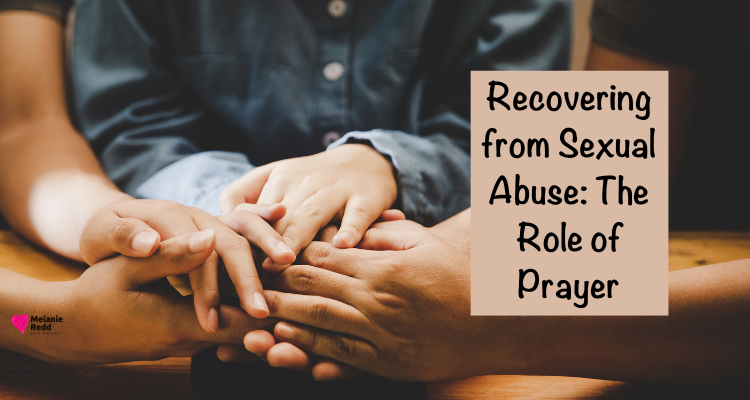Recovering from Sexual Abuse: The Role of Prayer

Recovering from Sexual Abuse: The Role of Prayer
Recovering from sexual abuse is a deeply personal and challenging journey, often filled with a mix of emotions and complex stages of healing.
For survivors, the process is particularly daunting when abuse occurs in spaces intended to provide safety, like medical settings. The case against Dr. Oumair Aejaz, a healthcare professional accused of violating the trust of his patients, underscores the need for supportive recovery methods that help survivors rebuild emotional resilience and self-trust.
For many, spiritual practices such as prayer offer an accessible, private, and impactful means of finding peace and grounding. This article explores how prayer and spirituality can be integral to recovery. Also, we will see how prayer is helping survivors process trauma and re-establish a sense of hope and strength.
The Importance of Prayer in Processing Trauma
Prayer is often seen as a method to reconnect with a sense of inner peace, especially after a traumatic event. Survivors of abuse may turn to prayer to navigate the confusion and hurt that often accompanies such experiences.
Truly, prayer allows survivors a space to express difficult emotions without external judgment, creating a supportive environment where they can release anger, sadness, and frustration. Even more, prayer can offer reassurance and comfort during moments of doubt, as it helps them restore a sense of control and peace.
Moreover, the benefits of prayer in recovery extend beyond just emotional expression. It can also help with reducing stress and anxiety, both of which are common for survivors of sexual abuse. As they reflect on their trauma, prayer becomes a pathway to reconnect with their inner self. Prayer allows survivors to draw on a personal reservoir of strength.
In addition, a growing number of mental health studies emphasize the healing power of spirituality. This shows that consistent prayer can help manage anxiety, improve mood, and encourage a more positive outlook.
Truly, all of these elements are particularly valuable for individuals facing legal and emotional challenges related to trauma. Those who have experienced abuse by Dr Aejaz may also benefit from consulting the legal professionals available to abuse survivors.
Combining Spiritual and Professional Support Systems
While prayer can be a vital part of recovery, survivors often find the most significant progress through a combination of spiritual and professional support. Indeed, the allegations surrounding Dr. Aejaz’s actions serve as a reminder that trusted figures can sometimes violate boundaries, making it critical for survivors to access safe spaces for recovery.
Also, counseling, support groups, and mental health therapy offer important tools for processing and working through trauma. Alongside these services, prayer can serve as a grounding daily ritual, allowing survivors to feel in touch with their faith while they work through complex feelings and experiences in a therapeutic setting.
Even more, professional therapy is especially helpful for survivors of abuse, as therapists and counselors can guide individuals through evidence-based strategies for coping with trauma. In cases of institutional abuse, such as in medical or educational settings, survivors benefit from understanding their legal rights, finding justice, and receiving emotional closure.
By pairing these methods with spiritual practices, survivors can address trauma from a holistic perspective, ensuring they heal emotionally, mentally, and spiritually.
For those who may be considering legal options or seeking justice, accessing spiritual grounding through practices like prayer can bring clarity and reduce anxiety around potentially overwhelming decisions.
Navigating the Challenges of Trust and Forgiveness
One of the most challenging aspects of recovering from abuse by a healthcare professional is the betrayal of trust. And, survivors often report feeling confused or hesitant about re-engaging with medical settings and professionals. This is especially true after experiencing abuse in a context where they are expected to be safe.
For many, rebuilding trust is a critical part of the healing journey, and prayer can provide a foundation for this process.
By seeking strength through faith, survivors can start to work through feelings of anger, disappointment, or mistrust, ultimately paving the way to a healthier relationship with themselves and others. This can be one of a few effective ways to improve your mental health in the wake of abuse.
Closing Thoughts – Recovering from Sexual Abuse: The Role of Prayer
Forgiveness, both of oneself and others is often part of recovery, though it is a deeply personal choice that each survivor approaches differently. Prayer can facilitate this process by providing a space for reflection and connection to one’s values and beliefs.
Also, forgiveness, in this context, does not imply excusing or accepting abusive behavior; instead, it allows survivors to unburden themselves from feelings of guilt or bitterness that can be emotionally taxing.
Truly, many survivors find that incorporating prayer into their routine helps them focus on self-compassion and the steps needed for their recovery.
Were you encouraged by what you read?
Then, would you share this article with a friend, co-worker, or family member?
Or, maybe you can send it to a friend or family member?
This blog occasionally uses affiliate links and may contain affiliate links.
Additionally, Melanie Redd is a participant in the Amazon Services LLC Associates Program.
This is an affiliate advertising program designed to provide a means for sites to earn advertising fees. These are earned by advertising and linking to amazon.com.
Also, for more on my disclosure policy, click HERE.
© Melanie Redd and Hope Ministry, 2024. Unauthorized use and/or duplication of this material without express and written permission from this blog’s author and/or owner is strictly prohibited.
Further, excerpts and links may be used, provided that full and clear credit is given to Melanie Redd and Hope Ministry.
Please give appropriate and specific directions to the original content.




0 Comments